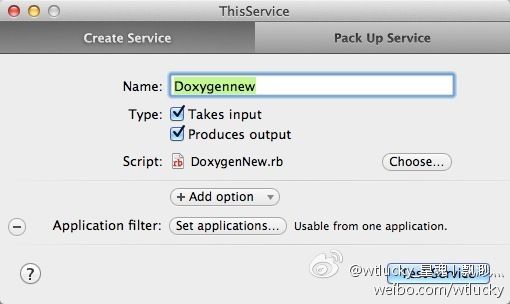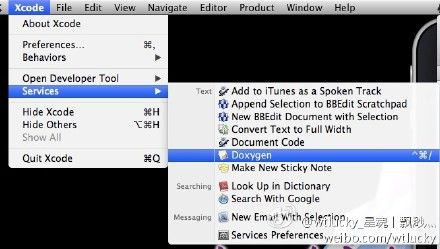1
2
3
4
5
6
7
8
9
10
11
12
13
14
15
16
17
18
19
20
21
22
23
24
25
26
27
28
29
30
31
32
33
34
35
36
37
38
39
40
41
42
43
44
45
46
47
48
49
50
51
52
53
54
55
56
57
58
59
60
61
62
63
64
65
66
67
68
69
70
71
72
73
74
75
76
77
78
79
80
81
82
83
84
85
86
87
88
89
90
91
92
93
94
95
96
97
98
99
100
101
102
103
104
105
106
107
108
109
110
111
112
113
114
115
116
117
118
119
120
121
122
123
124
125
126
127
128
129
130
131
132
133
134
135
136
137
138
139
140
141
142
143
144
145
146
147
148
149
150
151
152
153
154
155
156
157
158
159
160
161
162
163
164
165
166
167
168
169
170
171
172
173
174
175
176
177
178
179
180
181
182
183
184
185
186
187
188
189
190
191
192
193
194
195
196
197
198
199
200
201
202
203
204
205
206
207
208
209
210
211
212
213
214
215
216
217
218
219
220
221
222
223
224
225
226
227
228
229
230
231
232
233
234
235
236
237
238
239
240
241
242
243
244
245
246
247
248
249
250
251
252
253
254
255
256
257
258
259
260
261
262
263
264
265
266
267
268
269
270
271
272
273
274
275
276
277
278
279
280
281
282
283
284
285
286
287
288
289
290
291
292
293
294
295
296
297
298
299
300
301
302
303
304
305
306
307
308
309
310
311
312
313
314
315
316
317
318
319
320
321
322
323
324
325
326
327
328
329
330
331
332
333
334
335
336
337
338
339
340
341
342
343
344
345
346
347
348
349
350
351
352
353
354
355
356
357
358
359
360
361
362
363
364
365
366
367
368
369
370
371
372
373
374
375
376
377
378
379
380
381
382
383
384
385
386
387
388
389
390
391
392
393
394
395
396
397
398
399
400
401
402
403
404
405
406
407
408
409
410
411
412
413
414
415
416
417
|
#!/usr/bin/env ruby # # This script helps you make doxygen comments in Obj-C/C/C++ files in XCode # # Created by Fred McCann on 03/16/2010 - and Edwin. # http://www.duckrowing.com # Adapted for ThisService by Martin Pichlmair 03/29/2011 # Modified for Objectiv-c by Dake 07/22/2012 # Modified by wtlucky 11/21/2012 # httip://glade.tk # module Duckrowing # Convenience class to hold name and type information class Argument def initialize(type = nil, name = nil) self.type = type self.name = name end def name @name end def name=(name) if name != nil name.gsub!(/^&/,'') name.gsub!(/^\*/,'') name.gsub!(/\[.*$/,'') name.gsub!(/,$/,'') name.gsub!(/;$/,'') name.gsub!(/^\s*/,'') name.gsub!(/\s*$/,'') end if name == '...' @name = 'vararg_list' else @name = name end end def type @type end def type=(type) if type != nil type.gsub!(/&$/,'') type.gsub!(/\s*\*$/,'') type.gsub!(/^\s*/,'') type.gsub!(/\s*$/,'') end @type = type end end # Base implementation of commenter class BaseCommenter # Creates a new commenter object def initialize(indent, code) @indent = indent @code = code @arguments = [] @returns = false end # Creates an opening comment def start_comment(description = 'Description') str = "/**\n" #str = "#{@indent}/**\n" str += "#{@indent} *\t<##{description}#>\n" str end def arguments_comment str = '' @arguments.each do |arg| if str == '' str += "#{@indent} *\n" end str += "#{@indent} *\t@param \t#{arg.name} \t<##{arg.name} description#>\n" end str end def return_comment return '' if !@returns "#{@indent} *\n#{@indent} *\t@return\t<#return value description#>\n" end # Creates closing comment def end_comment() #"#{@indent} */\n" "#{@indent} */\n#{@indent}" end # Convenience method to detect multiline statements def is_multiline? @code =~ /\n/ end # Adds inline comments to a comma delimited list def comment_list(list, base_indent='') commented_list = "" ids = list.split(/,/) ids.each do |id| id.gsub!(/\s*$/, '') id.gsub!(/^\s*/, '') list_id = "#{id}" list_id += ',' if id != ids.last id.gsub!(/\=.*$/, '') id.gsub!(/\[.*\]/, '') id.gsub!(/\s*$/, '') id.gsub!(/^\s*/, '') id.gsub!(/;/, '') id.gsub!(/\s*\:\s*\d+/,'') doc_id = id.split(/\s/).last doc_id.gsub!(/\*/, '') commented_list += "#{base_indent}" if id != ids.first commented_list += "#{@indent}\t#{list_id} /**< <##{doc_id} description#> */" commented_list += "\n" if id != ids.last end commented_list end # Parses a comma delimited list into an array of Argument objects def parse_c_style_argument_list(str) arguments = [] str.split(/,/).each do |a| arg = Argument.new parts = a.split(/\s+/) arg.name = parts.last parts.delete_at(parts.size - 1) arg.type = parts.join(" ") @arguments << arg end end # Add Xcode selection markup to first editable field def select_first_field(str) # Add PBX selection to first field matches = str.scan(/\<\#.*\#\>/) if matches.size > 0 first_field = matches[0].to_s # str.gsub!(/#{first_field}/, "%%%{PBXSelection}%%%#{first_field}%%%{PBXSelection}%%%") str.gsub!(/#{first_field}/, "#{first_field}") end str end # Returns a comment above the code and the original section of commented code def document str = start_comment() str += arguments_comment() str += return_comment() str += end_comment() str += "#{@code}\n" #print "#{@code}" #matches = @code.scan(/\n/) #print matches.size #if matches.size > 1 #str += "#{@code}" #end select_first_field(str) end end class VariableCommenter < BaseCommenter # Adds a basic comment above individual variables and rewrites multiple # declaritions into an inline commented list def document if @code.gsub(/\n/, ' ') =~ /^([^\{]+\,)/ commented_code = comment_list(@code) commented_code.sub!(/^\s*/,@indent); select_first_field("#{commented_code}") else super end end end class PropertyCommenter < BaseCommenter # Adds a basic comment above individual properties end class MacroCommenter < BaseCommenter # Parse out args for inclusion in comment def capture_args matches = @code.scan(/\(([^\(\)]*)\)/) parse_c_style_argument_list(matches[0].to_s) @returns = true end # Adds a basic comment above individual variables and rewrites multiple # declaritions into an inline commented list def document capture_args if @code =~ /\(/ super end end # Implementation of commenter to comment C style enums class EnumCommenter < BaseCommenter # Comments identifiers in the code block def comment_code block_match = /\{([^\{\}]*)\}/ matches = @code.scan(block_match) return if matches.size != 1 block = matches[0].to_s @code.gsub!(block_match, "{\n#{comment_list(block)}\n#{@indent}}") end # Comments the enum. This will write comments next to each name for a multiline # statement. It will not for single line enumerations. def document comment_code if is_multiline? super end end # Implementation of commenter to comment C style enums class StructCommenter < BaseCommenter # Comments semicolon delimited list of struct members def comment_struct_list(list) commented_list = "" ids = list.gsub(/^\s*/,'').gsub(/\s*$/,'').split(/;/) ids.each do |id| id.gsub!(/\s*$/, '') id.gsub!(/^\s*/, '') list_id = "#{id};" base_indent = "\t" commented_list += "#{comment_list(list_id, base_indent)}\n" end commented_list end # Comments identifiers in the code block def comment_code block_match = /\{([^\{\}]*)\}/ matches = @code.scan(block_match) return if matches.size != 1 block = matches[0].to_s @code.gsub!(block_match, "{\n#{comment_struct_list(block)}#{@indent}}") end # Adds inline comments for members and a comment for the entire struct def document comment_code super end end class FunctionCommenter < BaseCommenter # Parse out args for inclusion in comment def capture_args matches = @code.scan(/\(([^\(\)]*)\)/) parse_c_style_argument_list(matches[0].to_s) end # Decides whether or not to add a returns tag to comment def capture_return @returns = @code.split(/\(/).first !~ /void/ end # Adds a basic comment above individual variables and rewrites multiple # declaritions into an inline commented list def document capture_args capture_return super end end class MethodCommenter < BaseCommenter TAILMATCH = /[\s*;.*]/ # Find the return type def capture_return_type matches = @code.scan(/^\s*[+-]\s*\(([^\(\)]*)\)/) return nil if matches.size != 1 type = matches[0].to_s.gsub(TAILMATCH, '') if type == 'void' || type == 'IBAction' @returns = nil else @returns = type end end # Parse out params def capture_parameters params = [] matches = @code.scan(/\:\(([^\(]+)\)(\S+)/) matches.each do |m| next if m.size != 2 arg = Argument.new arg.type = m[0].to_s.gsub(TAILMATCH, '') arg.name = m[1].to_s.gsub(TAILMATCH, '') @arguments << arg end end # Adds a basic comment above individual variables and rewrites multiple # declaritions into an inline commented list def document capture_parameters capture_return_type super end end class Documenter def document(code) # 此句刷格式缩进了 #code.gsub!(/\s*$/, '') indent = base_indentation(code) klass = nil if is_objc_property?(code) klass = PropertyCommenter elsif is_objc_method?(code) klass = MethodCommenter elsif is_function?(code) klass = FunctionCommenter elsif is_macro?(code) klass = MacroCommenter elsif is_struct?(code) klass = StructCommenter elsif is_union?(code) klass = StructCommenter elsif is_enum?(code) klass = EnumCommenter else klass = VariableCommenter end #puts "USE --> #{klass}" commenter = klass.new(indent, code) commenter.document end private def is_objc_method?(code) code =~ /^\s*[+-]/ end def is_objc_property?(code) code =~ /^\s*\@property/ end def is_function?(code) !is_macro?(code) && !is_objc_method?(code) && code =~ /\(/ end def is_macro?(code) code =~ /^\s*\#define/ end def is_enum?(code) code.gsub(/\n/, ' ') =~ /^\s*(\w+\s)?enum.*\{.*\}/ end def is_struct?(code) code.gsub(/\n/, ' ') =~ /^\s*(\w+\s)?struct.*\{.*\}/ end def is_union?(code) code.gsub(/\n/, ' ') =~ /^\s*(\w+\s)?union.*\{.*\}/ end def base_indentation(code) matches = code.scan(/^(\s*)/) return '' if matches.size == 0 matches[0].to_s end end end # Unicode considerations: # Set $KCODE to 'u'. This makes STDIN and STDOUT both act as containing UTF-8. $KCODE = 'u' # Since any Ruby version before 1.9 doesn't much care for Unicode, # patch in a new String#utf8_length method that returns the correct length # for UTF-8 strings. UNICODE_COMPETENT = ((RUBY_VERSION)[0..2].to_f > 1.8) unless UNICODE_COMPETENT # lower than 1.9 class String def utf8_length i = 0 i = self.scan(/(.)/).length i end end else # 1.9 and above class String alias_method :utf8_length, :length end end input = STDIN.read # input now contains the contents of STDIN. # Write your script here. # Be sure to print anything you want the service to output. documenter = Duckrowing::Documenter.new replacement = documenter.document(input) puts replacement #print replacement #print input
|


